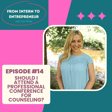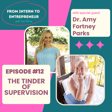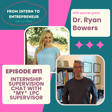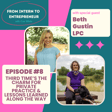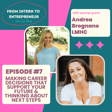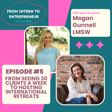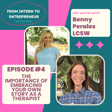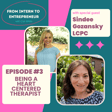
Episode 6: A Story of Immigration, Practice Building, And A Lot In Between!
From Intern to Entrepreneur is the podcast for counseling graduate students (and other grad students in mental health fields) to start planning their journey to private practice while they're still in graduate school! Host, Cori White, started planning her journey while she was still in her graduate program and it paid off BIG to start planning EARLY.
In this episode, Cori speaks to Phebe Brako-Owusu - and WOW does she have a lot to say! (And DAMN is she funny, btw!). Phebe talks about her immigration to the US, her decision to become a therapist, her experience in community mental health, and her journey into private practice.
AND HER ADVICE IS SOOOO SOLID!
More about Phebe:
Phebe Brako-Owusu, an award-winning Licensed Marriage and Family Therapist and Consultant, was born and raised in Ghana. She is licensed to see clients in Washington and Washington DC. Her passion for helping immigrants build a home away from home led her into private practice in 2016, and in 2021 she founded 253 Therapy and Consult in University Place, WA to mentor the next generation of therapists and increase accessibility to mental health services in Washington state. Phebe is a Washington state approved supervisor and is a doctoral student pursuing her PhD in counselor education and supervision. She is an upcoming adjunct professor at Antioch University New England who is currently researching international transracial adoption and hopes to pursue her research further in Ghana.
Website: www.phebebrakolmft.com
Instagram: @phebebrakolmft
Want to connect with Cori? Join her facebook community here: https://www.facebook.com/groups/frominterntoentrepreneur

